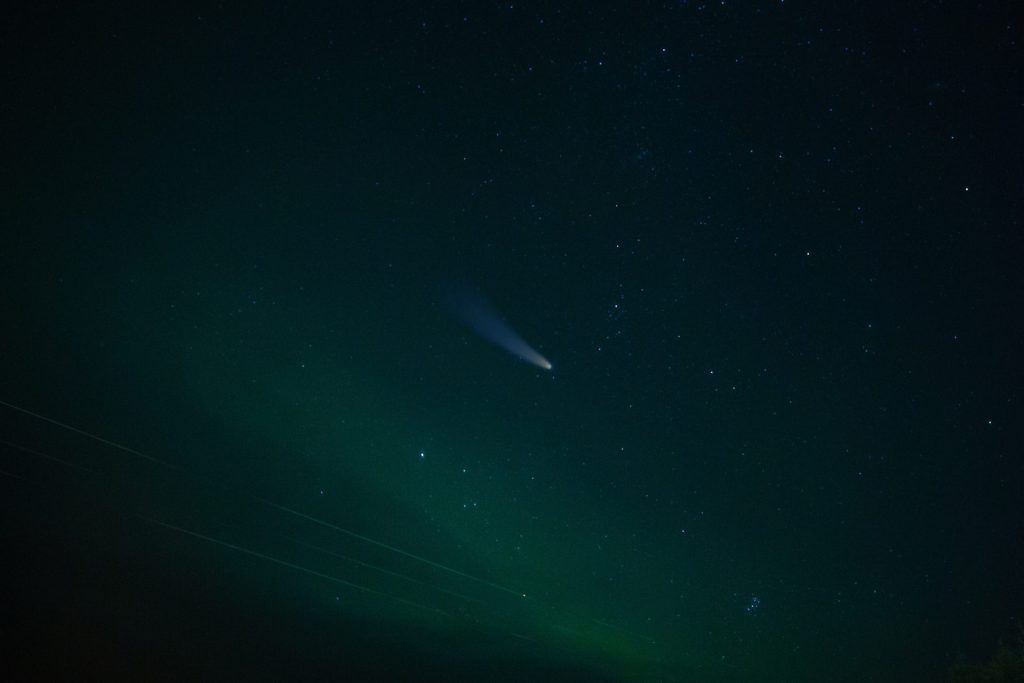The advanced asteroid detection algorithm, HelioLinc3D, has taken a considerable step forward in the space defense field, by successfully identifying its first potentially dangerous asteroid. This significant achievement strengthens the importance of early detection and monitoring technologies to minimize the risks posed by near-Earth objects. The algorithm, developed by Mario Jurić and Ari Heinze of the University of Washington, has attracted attention from the scientific community.
Jurić and Heinze’s remarkable innovation allows for the precise identification and tracking of asteroid movements, facilitating scientists in predicting any potential collisions with Earth more accurately than ever before. This early warning system plays a crucial role in global safety and preparedness, helping mitigate potential catastrophes caused by near-Earth objects.
Triumph for Indian Space Research Organization’s Chandrayaan-3 Mission
Rae Paoletta, The Planetary Society’s director of content and engagement, joined the developers of HelioLinc3D on Planetary Radio, praising the successful landing of the Indian Space Research Organization’s (ISRO) Chandrayaan-3 mission on the Moon. This accomplishment showcases ISRO’s unwavering dedication and technological advancements as well as its contribution to humanity’s understanding of Earth’s natural satellite. Chandrayaan-3’s landing is a pivotal moment for India’s space program and encourages international collaboration in lunar exploration.
The Increasing Interest of Nations in Space Exploration
During the radio program, Bruce Betts, the organization’s chief scientist, also contributed to the conversation on space aspirations. Betts emphasized the importance of international cooperation as various nations exhibit growing interest in exploring space. Organizations like The Planetary Society play an essential role in pushing the boundaries of space exploration, furthering humanity’s knowledge of the cosmos.
HelioLinc3D Algorithm’s Success in Identifying Dangerous Asteroids
Designed specifically for the upcoming Vera C. Rubin Observatory, the HelioLinc3D algorithm has proven its worth by identifying the potentially dangerous asteroid 2022 SF289 as its first confirmed case. The algorithm permits scientists to track and predict the trajectories of celestial objects with greater accuracy, helping to alleviate the potential risks they may present to Earth. With the success of detecting asteroid 2022SF289, researchers eagerly anticipate utilizing this sophisticated technology to detect and analyze other potential near-Earth objects, contributing to the global community’s safety and readiness.
ATLAS Observations Aid in Discovering Potentially Dangerous Asteroids
The ATLAS observations show the survey data as red boxes, signifying the regions in the sky where the asteroid was detected. This information enables scientists to obtain crucial details about the object’s trajectory and composition. By examining the survey data, astronomers can analyze the asteroid’s size, shape, and the possible threats it may pose to Earth and its inhabitants.
Planetary Radio’s Space Policy Edition Episodes on Temporary Hiatus
Casey Dreier, the chief of space policy for Planetary Radio, will be on paternity leave, causing the regular space policy edition episodes for September and October to be paused. In the meantime, listeners can enjoy recent episodes discussing subjects like the Artemis program, Mars Sample Return, and the policy ramifications of active SETI, available on various podcast platforms and the organization’s website.
Upcoming Discussions on Space Policy and Exploration
Anticipate upcoming conversations that explore topics such as commercial space partnerships, advancements in space exploration technology, and the role of international collaboration in outer space missions. Subscribe to these engaging discussions and expand your knowledge on space policy and the future of space exploration.
FAQ
What is the HelioLinc3D algorithm?
The HelioLinc3D algorithm is an advanced asteroid detection system developed by Mario Jurić and Ari Heinze of the University of Washington. It enables precise identification and tracking of asteroid movements, allowing scientists to predict potential collisions with Earth more accurately than ever before.
What is the significance of the HelioLinc3D algorithm in space defense?
HelioLinc3D plays a critical role in global safety and preparedness by providing an early warning system to mitigate potential catastrophes caused by near-Earth objects. Its ability to detect potentially dangerous asteroids strengthens the importance of early detection and monitoring technologies in minimizing risks posed by such objects.
What are the ATLAS observations?
ATLAS observations provide survey data that shows the regions in the sky where asteroids are detected, enabling scientists to obtain crucial information about the object’s trajectory and composition. This data helps astronomers analyze the asteroid’s size, shape, and possible threats it may pose to Earth and its inhabitants.
What is the role of international collaboration in space exploration?
International collaboration is essential as various nations exhibit growing interest in exploring space. Organizations like The Planetary Society push the boundaries of space exploration, furthering humanity’s knowledge of the cosmos, and encouraging cooperation between countries in conducting outer space missions.
What can listeners expect in upcoming discussions on space policy and exploration?
In upcoming discussions, listeners can anticipate topics such as commercial space partnerships, advancements in space exploration technology, and the role of international collaboration in outer space missions. Subscribing to these discussions will help expand your knowledge on space policy and the future of space exploration.
Why are Planetary Radio’s Space Policy Edition episodes on hiatus?
Planetary Radio’s Space Policy Edition episodes are on temporary hiatus for September and October due to Casey Dreier, the chief of space policy, going on paternity leave. During this time, listeners can still enjoy recent episodes on various podcast platforms and the organization’s website.
First Reported on: planetary.org
Featured Image Credit: Photo by Chris Henry; Unsplash; Thank you!





























